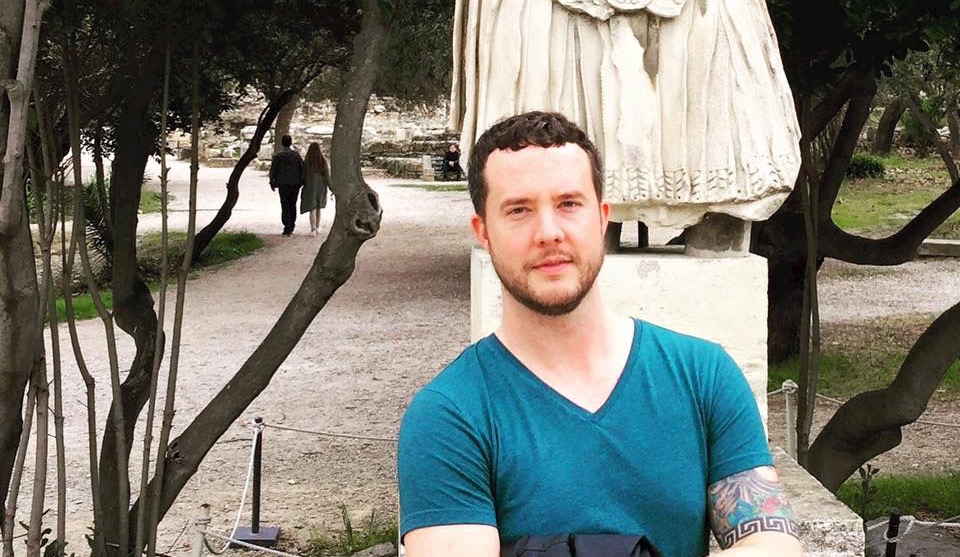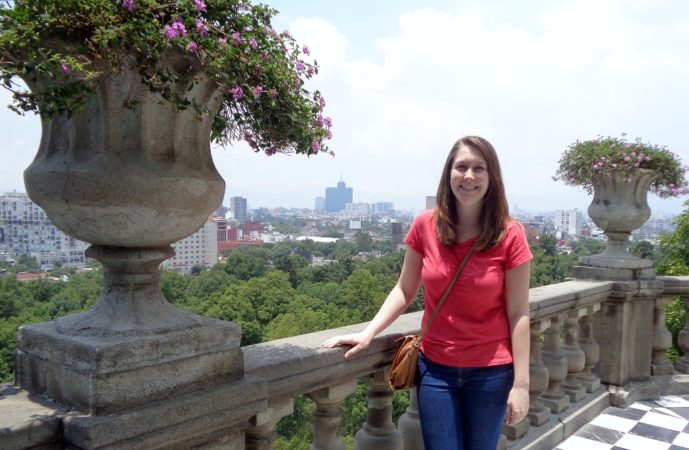History graduate students Marissa Nichols and Chris Kinley went back in time when researching abroad this academic year in Greece and Mexico, while also taking important steps forward.
As recipients of the Buchenau-Pharr Graduate Research Award, their research abroad allowed them to access on-site archival sources and develop cultural credibility in their chosen disciplines. Since their return and completion of their master’s degrees, both have been accepted into top-notch doctoral programs.
“I would highly recommend that other students who plan to pursue graduate school apply for research opportunities and grants,” Kinley says. “The hands-on experience is invaluable. It provides the necessary experience for future research in order to be successful.”
The Buchenau-Pharr Graduate Research Award is a fellowship that helps graduate students fulfill their research obligations by funding domestic and international research travel. The award was created through donations from intellectual salons hosted by community members Carol and Henry Pharr II and Jürgen Buchenau, chair of the History Department. Kinley and Nichols each received $2,500 to study abroad.
Nichols, a Latin American historian researching disease and public health in modern Mexico, spent three weeks in Mexico City studying the country’s 1942 smallpox epidemic and eradication. She investigated how smallpox campaigns consolidated or diffused government power.
“I started composing a research proposal in the spring of 2015 to explore the last outbreaks of smallpox in Mexico, but immediately realized that I couldn’t do it from Charlotte,” Nichols says. “Though some archival materials have been digitized in recent years, that wasn’t the case with documents on smallpox in the 1940s and 1950s.”
To write her thesis on Mexico’s smallpox elimination, Nichols needed to travel to the archives in Mexico City. The research trip not only allowed her to write a well-researched and documented thesis while also having a lasting impact on her life.
“The trip was crucial in a number of ways,” she says. “It confirmed my love for the profession. I loved talking to the archivists in Mexico City, searching for documents, connecting with fellow scholars, and living in a city where I had never been. The research trip was also a pivotal point in my career as it affirmed my desire to continue researching disease and health in Mexico and to apply to Ph.D. programs in history.”
As a result of her travels, Nichols presented her research at the Graduate History Forum at UNC Charlotte this past February, and she traveled to Cartagena, Colombia in March to present a portion of her thesis. She has also accepted Emory University’s offer to attend its history Ph.D. program in fall 2016.
“Overall, I’d say this was one of the best experiences I’ve had at UNC Charlotte,” she says. “I’ve gained invaluable research experience in foreign archives, something most master’s degree students in history don’t have. I owe so much to the Buchenau-Pharr committee and donors for selecting my application and helping me reach this next step.”
 Nichols’ fellow student, Kinley, spent 20 days in Athens, Greece researching Greece and World War I, the culmination of the Greco-Turkish War, and the population exchange during 1919-1923. His study of the extermination programs in Turkey and the population exchanges also hold key implications for gaining a better understanding of genocide and state-sponsored assimilation programs in the aftermath of war.
Nichols’ fellow student, Kinley, spent 20 days in Athens, Greece researching Greece and World War I, the culmination of the Greco-Turkish War, and the population exchange during 1919-1923. His study of the extermination programs in Turkey and the population exchanges also hold key implications for gaining a better understanding of genocide and state-sponsored assimilation programs in the aftermath of war.
“My research experience prior to the travel grant was limited to books and online digitized sources,” Kinley says. “It was important for me to travel to Greece because a lot of the sources I needed are physically stored in the State Archives in Athens.”
Kinley found it most fascinating to be abroad alone in such a large city. He was also excited to make friends, and discovered that one of the military files he was exploring had never before been seen by another researcher.
“This research experience has definitely impacted my life in several ways,” he says. “It made me more competitive when applying to Ph.D. programs, and allowed me to make connections in Athens with several academics who could influence my academic career in the future.”
Kinley has published an article in the Madison Historical Review, examining the various facets of Greek identity during the outbreak of the independence movement, and how identity shaped and affected the movement itself. He has received a University Fellowship from Ohio State University and will be pursuing his doctoral degree there this fall.
Four students also received smaller research grants, as honorable mention honorees. Each honoree was awarded $500 to help assist with research expenditures. Those students also are seeing success in their continuing studies, with offers of additional funding and acceptance to prestigious doctoral programs. They are Brian Hardman, Maria Paula Andrade, Denisse Andrea Guzman, and Julie Hawks.








